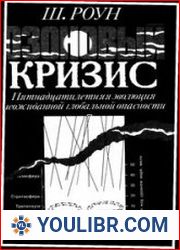
BOOKS - HISTORY - Боснийский кризис 1908-1909 гг.

Боснийский кризис 1908-1909 гг.
Year: 1964
Format: PDF
File size: 19.3 MB
Language: RU

Format: PDF
File size: 19.3 MB
Language: RU

The book by KB Vinogradov is dedicated to one of the acute crises in world politics at the beginning of the twentieth century. In October 1908, Austria-Hungary annexed the Slavic lands of Bosnia and Herzegovina, causing a crisis in international relations that nearly led to a war of global proportions. The author examines the causes of this conflict and demonstrates how it heightened tensions in Europe, ultimately determining the balance of power in the international arena before the outbreak of the First World War. The plot revolves around the historical events of the Bosnian Crisis of 1908-1909, which was a pivotal moment in European history. The annexation of Bosnia and Herzegovina by Austria-Hungary sparked a chain reaction of political and military events that brought the continent to the brink of war. The author delves into the intricacies of diplomatic negotiations, military mobilizations, and the complex web of alliances that defined the geopolitical landscape of the time. Through a detailed analysis of primary sources, the book sheds light on the motivations and actions of the major powers involved, revealing the fragility of the international order and the potential for catastrophic conflict. At its core, the story is about the struggle for dominance and the fear of losing control in a rapidly changing world.
Книга К. Б. Виноградова посвящена одному из острых кризисов в мировой политике начала ХХ века. В октябре 1908 года Австро-Венгрия аннексировала славянские земли Боснии и Герцеговины, что вызвало кризис в международных отношениях, едва не приведший к войне глобальных масштабов. Автор рассматривает причины этого конфликта и демонстрирует, как он усилил напряженность в Европе, в конечном итоге определяя баланс сил на международной арене до начала Первой мировой войны. Сюжет вращается вокруг исторических событий Боснийского кризиса 1908-1909 годов, который был поворотным моментом в европейской истории. Аннексия Боснии и Герцеговины Австро-Венгрией вызвала цепную реакцию политических и военных событий, которые поставили континент на грань войны. Автор углубляется в тонкости дипломатических переговоров, военных мобилизаций и сложной паутины альянсов, которые определяли геополитический ландшафт того времени. Посредством детального анализа первоисточников книга проливает свет на мотивы и действия крупных вовлеченных держав, выявляя хрупкость международного порядка и потенциал катастрофического конфликта. По своей сути история о борьбе за доминирование и страхе потерять контроль в быстро меняющемся мире.
livre de K. B. Vinograd est consacré à l'une des crises aiguës de la politique mondiale du début du XXe siècle. En octobre 1908, l'Autriche-Hongrie a annexé les terres slaves de Bosnie-Herzégovine, ce qui a provoqué une crise dans les relations internationales qui a presque conduit à une guerre mondiale. L'auteur examine les causes de ce conflit et montre comment il a exacerbé les tensions en Europe, déterminant finalement l'équilibre des pouvoirs sur la scène internationale avant la Première Guerre mondiale. L'histoire tourne autour des événements historiques de la crise bosniaque de 1908-1909, qui a marqué un tournant dans l'histoire européenne. L'annexion de la Bosnie-Herzégovine par l'Autriche-Hongrie a provoqué une réaction en chaîne des événements politiques et militaires qui ont mis le continent au bord de la guerre. L'auteur approfondit les subtilités des négociations diplomatiques, des mobilisations militaires et des alliances complexes qui ont défini le paysage géopolitique de l'époque. Par une analyse détaillée des sources primaires, le livre met en lumière les motivations et les actions des grandes puissances impliquées, révélant la fragilité de l'ordre international et la possibilité d'un conflit catastrophique. L'histoire de la lutte pour la domination et la peur de perdre le contrôle dans un monde en mutation rapide.
libro de K. B. Vinogradov trata de una de las crisis agudas en la política mundial de principios del siglo XX. En octubre de 1908, Austria-Hungría anexionó las tierras eslavas de Bosnia y Herzegovina, lo que provocó una crisis en las relaciones internacionales que casi desembocó en una guerra de proporciones globales. autor examina las causas de este conflicto y demuestra cómo aumentó las tensiones en , determinando finalmente el equilibrio de poder en el escenario internacional antes del estallido de la Primera Guerra Mundial. La trama gira en torno a los acontecimientos históricos de la crisis bosnia de 1908-1909, que supuso un punto de inflexión en la historia europea. La anexión de Bosnia y Herzegovina por Austria-Hungría provocó una reacción en cadena de acontecimientos políticos y militares que pusieron al continente al borde de la guerra. autor profundiza en los entresijos de las negociaciones diplomáticas, las movilizaciones militares y la compleja red de alianzas que definieron el panorama geopolítico de la época. A través de un análisis detallado de las fuentes originales, el libro arroja luz sobre los motivos y acciones de las grandes potencias involucradas, revelando la fragilidad del orden internacional y el potencial de un conflicto catastrófico. Inherentemente, la historia es sobre la lucha por el dominio y el miedo a perder el control en un mundo que cambia rápidamente.
O livro K. B. Vinogradov trata de uma das grandes crises da política mundial do início do século XX. Em outubro de 1908, a Áustria-Hungria anexou terras eslavas da Bósnia, provocando uma crise nas relações internacionais que quase levou a uma guerra global. O autor analisa as causas deste conflito e demonstra como ele aumentou as tensões na , eventualmente determinando o equilíbrio de poder no cenário internacional antes do início da Primeira Guerra Mundial. A história gira em torno dos acontecimentos históricos da crise da Bósnia de 1908-1909, que foi um ponto de viragem na história europeia. A anexação da Bósnia pela Áustria-Hungria provocou reações em cadeia de eventos políticos e militares que colocaram o continente à beira da guerra. O autor aprofundou-se na sutileza das negociações diplomáticas, das mobilizações militares e da complexa teia de alianças que definiram a paisagem geopolítica da época. Através de uma análise detalhada das fontes primárias, o livro ilumina os motivos e as ações das grandes potências envolvidas, revelando a fragilidade da ordem internacional e o potencial de conflito catastrófico. A história é essencialmente sobre a luta para dominar e o medo de perder o controlo num mundo em rápida mudança.
Il libro K. B. Vinivov è dedicato a una delle crisi più gravi della politica mondiale dell'inizio del XX secolo. Nell'ottobre 1908, l'Austria-Ungheria annesse le terre slave della Bosnia ed Erzegovina, causando una crisi nelle relazioni internazionali che quasi ha portato a una guerra di proporzioni globali. L'autore affronta le cause di questo conflitto e dimostra come abbia aumentato le tensioni in , finendo per determinare l'equilibrio di potere sulla scena internazionale prima dello scoppio della prima guerra mondiale. La storia ruota intorno agli eventi storici della crisi bosniaca del 1908-1909, che fu un punto di svolta nella storia europea. L'annessione della Bosnia-Erzegovina da parte dell'Austria-Ungheria ha provocato una reazione a catena degli eventi politici e militari che hanno portato il continente al limite della guerra. L'autore approfondisce la finezza delle trattative diplomatiche, delle mobilitazioni militari e della complessa ragnatela di alleanze che definivano il panorama geopolitico dell'epoca. Attraverso un'analisi dettagliata delle prime fonti, il libro mette in luce le motivazioni e le azioni delle grandi potenze coinvolte, rivelando la fragilità dell'ordine internazionale e il potenziale di un conflitto catastrofico. In pratica, la storia della lotta per il dominio e la paura di perdere il controllo in un mondo in rapida evoluzione.
Das Buch von K. B. Vinogradov ist einer der akuten Krisen in der Weltpolitik des frühen 20. Jahrhunderts gewidmet. Im Oktober 1908 annektierte Österreich-Ungarn die slawischen Länder von Bosnien und Herzegowina, was zu einer Krise in den internationalen Beziehungen führte, die fast zu einem Krieg von globalem Ausmaß führte. Der Autor untersucht die Ursachen dieses Konflikts und zeigt, wie er die Spannungen in verschärfte und schließlich das Gleichgewicht der Kräfte auf der internationalen Bühne vor dem Ausbruch des Ersten Weltkriegs bestimmte. Die Handlung dreht sich um die historischen Ereignisse der Bosnienkrise von 1908-1909, die einen Wendepunkt in der europäischen Geschichte darstellte. Die Annexion Bosnien-Herzegowinas durch Österreich-Ungarn löste eine Kettenreaktion politischer und militärischer Ereignisse aus, die den Kontinent an den Rand eines Krieges brachten. Der Autor taucht ein in die Feinheiten diplomatischer Verhandlungen, militärischer Mobilisierungen und des komplexen Geflechts von Allianzen, die die geopolitische Landschaft jener Zeit bestimmten. Durch eine detaillierte Analyse der Primärquellen beleuchtet das Buch die Motive und Handlungen der beteiligten Großmächte und zeigt die Fragilität der internationalen Ordnung und das Potenzial für katastrophale Konflikte auf. Im Kern geht es in der Geschichte um den Kampf um Dominanz und die Angst, in einer sich schnell verändernden Welt die Kontrolle zu verlieren.
Księga K. B. Winogradowa poświęcona jest jednemu z ostrych kryzysów w polityce światowej na początku XX wieku. W październiku 1908 roku Austro-Węgry przyłączyły słowiańskie ziemie Bośni i Hercegowiny, co spowodowało kryzys w stosunkach międzynarodowych, który prawie doprowadził do wojny o rozmiarach globalnych. Autor bada przyczyny tego konfliktu i pokazuje, jak zwiększył napięcia w Europie, ostatecznie określając równowagę władzy na arenie międzynarodowej przed wybuchem I wojny światowej. Fabuła obraca się wokół historycznych wydarzeń bośniackiego kryzysu z lat 1908-1909, który był punktem zwrotnym w historii Europy. Aneksja Bośni i Hercegowiny przez Austro-Węgry spowodowała reakcję łańcuchową wydarzeń politycznych i wojskowych, które doprowadziły kontynent do krawędzi wojny. Autor zagłębia się w zawiłości negocjacji dyplomatycznych, mobilizacji wojskowych i złożonej sieci sojuszy, które określały ówczesny krajobraz geopolityczny. Poprzez szczegółową analizę źródeł podstawowych książka rzuca światło na motywy i działania najważniejszych zaangażowanych sił, ujawniając kruchość porządku międzynarodowego i potencjał konfliktu katastrofalnego. U podstaw tej historii leży walka o dominację i strach przed utratą kontroli w szybko zmieniającym się świecie.
''
K. B. Vinogradov'un kitabı, yirminci yüzyılın başında dünya siyasetinde yaşanan akut krizlerden birine adanmıştır. Ekim 1908'de Avusturya-Macaristan, Bosna-Hersek'in Slav topraklarını ilhak etti ve bu da uluslararası ilişkilerde neredeyse küresel bir savaşa yol açan bir krize neden oldu. Yazar, bu çatışmanın nedenlerini inceliyor ve I. Dünya Savaşı'nın patlak vermesinden önce uluslararası sahnede güç dengesini belirleyerek Avrupa'daki gerilimleri nasıl artırdığını gösteriyor. Arsa, Avrupa tarihinde bir dönüm noktası olan 1908-1909 Bosna krizinin tarihsel olayları etrafında dönüyor. Bosna-Hersek'in Avusturya-Macaristan tarafından ilhak edilmesi, kıtayı savaşın eşiğine getiren siyasi ve askeri olayların zincirleme reaksiyonuna neden oldu. Yazar, diplomatik müzakerelerin, askeri seferberliklerin ve zamanın jeopolitik manzarasını tanımlayan karmaşık ittifaklar ağının inceliklerini inceliyor. Kitap, birincil kaynakların ayrıntılı bir analiziyle, ilgili büyük güçlerin güdülerine ve eylemlerine ışık tutuyor, uluslararası düzenin kırılganlığını ve yıkıcı çatışma potansiyelini ortaya koyuyor. Özünde, hikaye hakimiyet mücadelesi ve hızla değişen bir dünyada kontrolü kaybetme korkusu ile ilgilidir.
كتاب ك. ب. فينوغرادوف مكرس لإحدى الأزمات الحادة في السياسة العالمية في بداية القرن العشرين. في أكتوبر 1908، ضمت النمسا-المجر الأراضي السلافية للبوسنة والهرسك، مما تسبب في أزمة في العلاقات الدولية، والتي كادت أن تؤدي إلى حرب ذات أبعاد عالمية. يبحث المؤلف في أسباب هذا الصراع ويوضح كيف أدى إلى زيادة التوترات في أوروبا، مما أدى في النهاية إلى تحديد ميزان القوى على المسرح الدولي قبل اندلاع الحرب العالمية الأولى. تدور الحبكة حول الأحداث التاريخية للأزمة البوسنية 1908-1909، والتي كانت نقطة تحول في التاريخ الأوروبي. وقد تسبب ضم النمسا والمجر للبوسنة والهرسك في سلسلة من ردود الفعل للأحداث السياسية والعسكرية التي أوصلت القارة إلى حافة الحرب. يتعمق المؤلف في تعقيدات المفاوضات الدبلوماسية والتعبئة العسكرية وشبكة التحالفات المعقدة التي حددت المشهد الجيوسياسي في ذلك الوقت. من خلال تحليل مفصل للمصادر الأولية، يلقي الكتاب الضوء على دوافع وأفعال القوى الكبرى المعنية، مما يكشف عن هشاشة النظام الدولي واحتمال نشوب صراع كارثي. في جوهرها، تدور القصة حول النضال من أجل الهيمنة والخوف من فقدان السيطرة في عالم سريع التغير.








 49
49  1 TON
1 TON







































